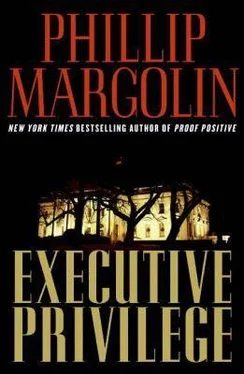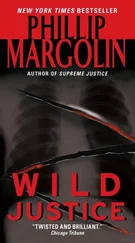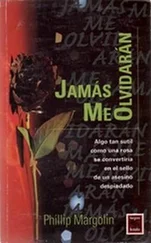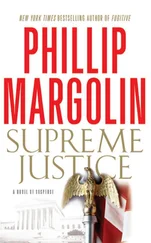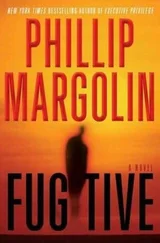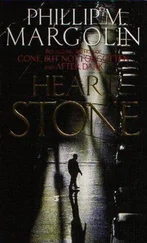Any president has access to scores of trained killers. He is, after all, the commander in chief of the armed forces of the United States. But there’s a difference between sending an army to fight a country’s enemies and murdering a college coed. Dana didn’t doubt that Farrington had access to people who would obey the order of a president to kill a helpless civilian, but where would he have found such a person on short notice? Unless Farrington had planned to kill Charlotte Walsh before he asked her to come to the farm, the decision had been made after she left the farm and before she returned to her car in the mall parking lot. That suggested that the killer was someone very close to the president.
Dana followed a young couple inside and wandered through the library until she located an open computer. She logged on with the password from the motel and started to Google “Christopher Farrington,” but she stopped in midstroke. At the motel, she’d been reading something when the TV news report of Charlotte Walsh’s death interrupted her. What was it? Dana shut her eyes and tried to remember. A murder! That was it. Charles Hawkins had been a witness in a murder case in Oregon, something to do with a teenage babysitter.
Dana’s fingers flew over the keyboard. In a few moments she had the case name. Seconds later, she had a number of hits by using the name “Clarence Little.” The more she learned about the murder of Laurie Erickson the more confident she was that Charles Hawkins and the president had copied Little’s modus operandi in Oregon and Eric Loomis’s in D.C. to cover up the murders of two teenagers who had become threats to Farrington. A newspaper story informed her that Clarence Little was challenging his conviction for the murder of Laurie Erickson by claiming an alibi for the time of Erickson’s death. Eric Loomis was denying that he was culpable for Charlotte Walsh’s death. Dana saw a pattern starting to develop. Later that evening, she got on a bus headed for Portland, Oregon, where Brad Miller, the attorney of record for Clarence Little, was practicing law.
Keith Evans stayed at the hospital with Maggie Sparks while the doctors stitched up her cheek. The wound was nasty but the damage was all cosmetic. Maggie joked that the scar would make her look tough. Evans drove her home after she was discharged and offered to stay with her, but she said she’d be fine. When Evans finally got to sleep it was three in the morning and he didn’t get up until eight.
At the office, Evans was bombarded with questions as soon as he stepped out of the elevator. He assured everyone that he and Maggie were okay. He had almost reached his office when Justice Kineer’s secretary grabbed him and led him to the justice’s office for a private, detailed account of the motel shoot-out.
Evans finally made it to his office at ten-thirty. The first thing he noticed was a thick folder sitting squarely in the center of his desk. He sat down and read the tab. It was Dana Cutler’s classified file. Evans opened it and blinked. He found himself looking at photographs that documented a scene so gruesome that it took a while for his brain to process it.
Three men were sprawled on the floor in different parts of a rec room. There was a pool table in the middle of the scene, and Evans noticed a pool cue on the floor next to the right arm of one of the victims, a burly, bearded man wearing jeans and a black T-shirt. When he looked closer, Evans realized that the man’s right hand was not connected to the arm. He also noticed several deep, slashing wounds on the man’s face, neck, chest, and legs. The body was drenched in blood.
Evans shuffled through the stack of photographs. The other men had also been hacked to pieces. Evans tried to remember if he’d ever seen such carnage and the closest he could come to it was an act of Russian Mafia vengeance that had wiped out an entire family. But those murders had been carried out unemotionally in an orderly manner because the executioners had been interested in sending a message. These killings suggested pure savagery.
A second set of photographs portrayed a fourth victim who had been discovered in the basement. A chain that ended in an open manacle lay near his body. A close-up of the victim’s face showed a jagged piece of glass protruding from the man’s left eye and several bullet holes in his face.
There was an audiocassette of Dana Cutler’s statement in the file and a transcript of the tape. Before listening to the tape, Evans read through the police reports. A squad of D.C. narcotics detectives had responded to a call from Dana that directed them to a house in a rural area near the Maryland shore. The narcotics officers had lost contact with her three days before when the meth cook she was traveling with gave them the slip. The reporting officer noted that Dana spoke in a monotone and could barely be heard. She refused to discuss what had happened when asked and restricted her conversation to directions that would bring the police to her.
When the police arrived at the house they found Dana sitting in the rec room near the phone staring into space. She was naked and covered in gore. A blood-soaked ax lay at her feet next to two.357 Magnum handguns. The dead men all had lengthy police records and had been arrested for or charged with multiple assaults, rapes, and murders. A report written after talking to the physician who had treated Dana at the hospital informed Evans that she had suffered several savage beatings over every part of her body and had been raped repeatedly. She had been transferred to a psychiatric hospital as soon as her physical problems had been treated.
Evans put the cassette in a tape recorder and pressed the play button. He had to turn the volume up because Dana spoke in a voice that was barely audible and she slurred her words, giving the impression that she was drugged or exhausted. The interview was conducted by Detective Aubrey Carmichael, who asked Dana what had happened after she arrived at the meth lab.
“They hit me,” Dana answered.
“Hit you how?” Aubrey asked.
“On the head. I don’t remember much. When I came to I was chained by the leg to the wall in the basement.”
“What happened after you woke up?”
“They beat me and they raped me. I was naked. They kept me naked.”
Evans heard sobs on the tape. Aubrey offered Dana water. There was no sound on the tape for a while. Then the conversation resumed.
“How did you escape?” the detective asked.
“Brady was drinking beer while he waited to rape me.”
“Brady is the cook?”
“Yes. He put the bottle down. It was empty. He forgot to take it with him. He came down later to rape me again. He was alone. He…he was in me. His eyes were closed. When he opened them I…”
“It’s okay. We can fill in the details when you’re better.”
“I won’t be better. Not ever.”
Evans lost contact with his surroundings as he listened to Dana Cutler describe her walk up the cellar steps with Brady’s Magnum in one hand and an ax in the other. She had taken the other gang members by surprise while they were playing pool and shot them in their legs and shoulders, disabling them. Then she’d taken the ax to each of them. Dana’s account was sketchy because she didn’t remember a lot of what she’d done.
Reports from the mental hospital characterized her as suffering post-traumatic stress disorder and extreme depression. Dana experienced recurring nightmares and flashbacks. She had become an outpatient almost a year after being admitted.
“Jesus Christ,” Evans muttered when he finished the file. He could not begin to imagine what Dana had felt during her ordeal and he felt an overwhelming need to find her and protect her.
Читать дальше
